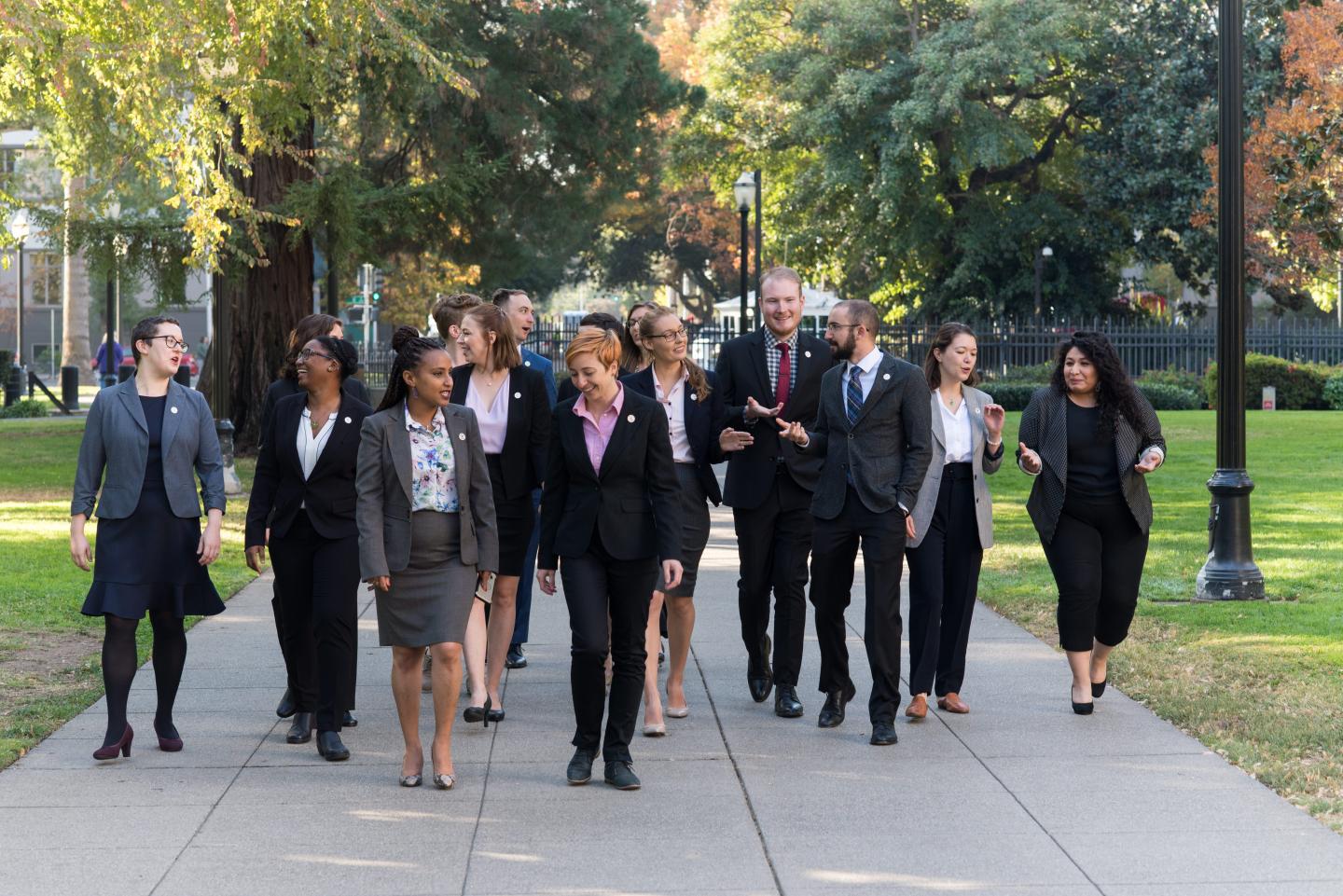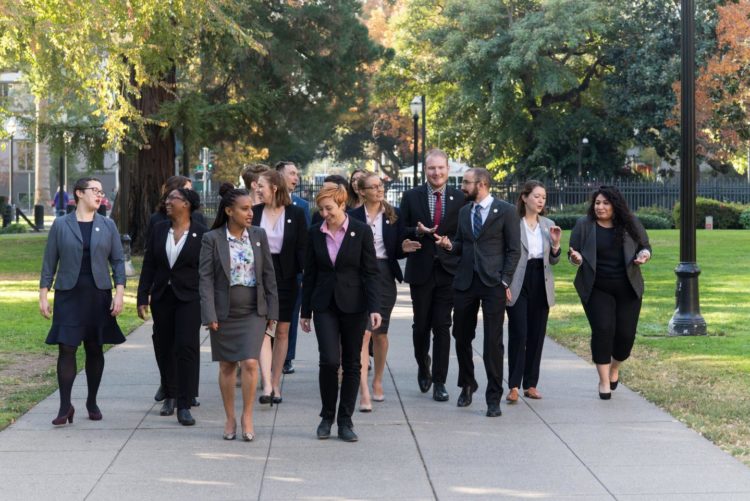Chan Zuckerberg Initiative awards nearly $450,000 for science policy fellows in Idaho, Missouri, and Virginia

Credit: Photo courtesy of CCST.
Today, the Chan Zuckerberg Initiative (CZI) announced $448,550 in funding to support science and technology policy fellowships in Idaho, Missouri, and Virginia to connect scientists with policymakers and support the use of scientific evidence in decision making. These grants will enable the launch of fellowships similar to those pioneered by the California Council on Science and Technology (CCST) and the American Association for the Advancement of Science (AAAS) to train and supply science and technology fellows to policy makers.
“The importance of incorporating scientific evidence in policy decisions cannot be overstated,” said CZI Health Policy Lead, Anne Claiborne. “Through these state-centric science policy fellowships, CZI is excited to support scientists to engage with policymakers in their states so they can learn from each other, strengthen the basis for sound policy decisions, and cultivate future leaders in science policy.”
These policy fellowship programs will forge dedicated channels for constructive dialogue between scientists and policymakers and help elevate scientific issues and findings within civic discourse. The fellowships also aim to enrich policymakers’ understanding of how the scientific method can inform decision making while enhancing scientists’ understanding about how to communicate effectively with policymakers.
CZI is funding these grants in partnership with local and national funders specific to each location:
Idaho Science & Technology Policy Fellowship (ISTPF): $172,500 for 12 months
This grant supports the establishment of a fellowship program based at the James A. and Louise McClure Center for Public Policy Research at the University of Idaho in partnership with Boise State University and Idaho State University. This nonpartisan program will match Idaho scientists and engineers with state agencies to develop and implement solutions that address challenges facing Idaho. Policy areas will include water, energy, fire, public health, and economic development. Fellowships will be for a one-year term, and fellows will be required to have a doctoral level degree in science or social science or an MS in engineering with three years of professional engineering experience.
Missouri Science and Technology Policy Fellows Program: $249,832 for 24 months
This grant supports the establishment of a fellowship program based at the University of Missouri. The program is a project of the Missouri Science and Technology (MOST) Policy Initiative, the mission of which is “promoting long-term health, sustainability, and economic growth for people and communities by connecting science and policy at the local and state levels.” Fellowships will be for a one-year term, with an option to extend for a second year, and fellows will be required to have a PhD or equivalent in science, technology, engineering, math, or medicine. Fellows will provide scientific research on topics such as life sciences, education and workforce, health and wellness, technology and engineering, and economics and finance. They will help inform members of the legislature about the benefits and consequences of pending policies, and assist with building evidence-based research capacity and training workshops for legislators and their staff.
Commonwealth of Virginia Engineering and Science (COVES) Policy Fellowship: $26,218 for 12 months
This grant supports the establishment of a fellowship program hosted by the Virginia Academy of Science, Engineering and Medicine (VASEM), as well as the participation of a fellow from one of Virginia’s historically black colleges and universities (HBCUs). This program will strengthen ties between the scientific community and state government in the Commonwealth of Virginia, while encouraging and equipping more scientists and engineers to enter public service. A coalition of Virginia universities have joined forces with VASEM to launch the COVES Policy Fellowship, which will include an inaugural cohort of six fellows. Current graduate students and postdoctoral researchers are eligible to become fellows and will work as scientific advisors in government, non-profit, and industry offices in Richmond, Va. during the summer of 2020.
###
The AAAS Science and Technology Policy Fellowships program was founded in 1973, and as of 2019 places more than 250 fellows each year in all branches of the federal government. The CCST Science Fellows program was established in 2009 and has historically placed 10 fellows annually in the California state legislature. In 2020, in light of the success of the program, CCST is expanding its cohort to include an additional five fellows that will be placed in the state executive branch.
These new fellowships will help inform how CCST’s successful state-based science fellows program can be replicated across other states where policy institutions operate differently and where science policy issues vary. In 2019, CZI awarded a $285,000 grant to CCST’s Science & Technology Policy Fellowship Program in partial support of its 2019-2020 fellows, who are currently serving as staff in the California State Legislature and in the California Executive Branch.
About the Chan Zuckerberg Initiative
Founded by Dr. Priscilla Chan and Mark Zuckerberg in 2015, the Chan Zuckerberg Initiative (CZI) is a new kind of philanthropy that’s leveraging technology to help solve some of the world’s toughest challenges — from eradicating disease, to improving education, to reforming the criminal justice system. Across three core Initiative focus areas of Science, Education, and Justice & Opportunity, we’re pairing engineering with grant-making, impact investing, and policy and advocacy work to help build an inclusive, just and healthy future for everyone. For more information, please visit http://www.
Media Contact
Leah Duran
[email protected]
650-213-6170
Original Source
https:/





